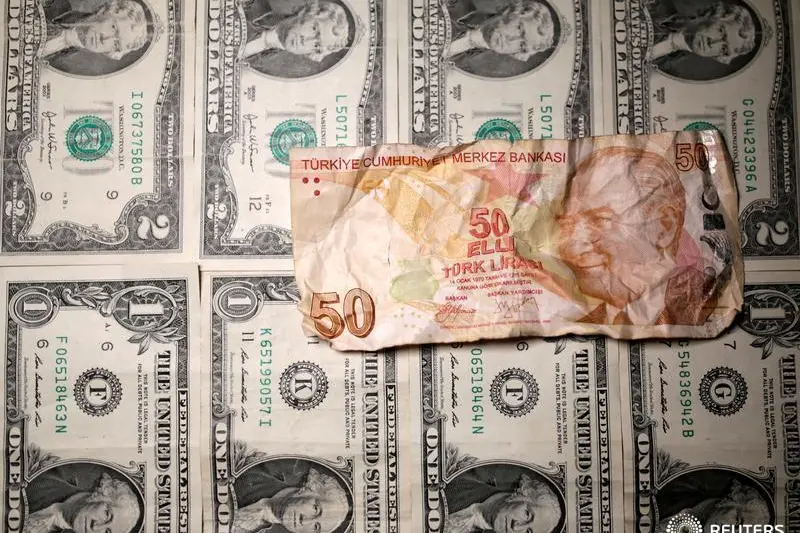PHOTO
Most emerging market currencies firmed on Thursday as the dollar slipped following less-hawkish signals from the U.S. Federal reserve, although Turkey's lira hovered near record lows and South Africa's rand was subdued after central bank decisions.
Brazil's real jumped 0.9%. Brazilian Senator Marcelo Castro told Reuters that the spending cap waiver bill, which aims to exempt at least 100 billion reais ($19 billion) for welfare spending next year, must be approved by Dec. 10 so lawmakers can focus on the country's budget for next year.
Meanwhile, data showed consumer prices hit 0.53% in mid-November but came in below market forecasts, reinforcing views that the Brazilian central bank would stick to its current plans after ending an aggressive tightening cycle.
Brazil stocks gained 2.8%, with shares of heavyweight Petrobras up 3.6%. President-elect Luiz Inacio Lula da Silva's aide said the incoming leftist government had no intention of causing a "breakdown" of the state-run oil giant and that everything would be discussed with markets.
Mexico's peso slipped 0.1%. Minutes from the Bank of Mexico's last policy meeting showed policymakers see price pressures easing but more rate hikes possible as core inflation trends higher.
In South Africa, the rand was flat against the dollar after the central bank hiked repo rate by 75 basis points to tame rising inflation, but lowered its growth forecast for the year impacted by power cuts as coal-fired state power utility Eskom struggles with power generation.
However, Turkey's central bank cut its policy rate by 150 basis points to 9% as expected and decided to halt its easing cycle, in line with President Tayyip Erdogan's call for a single-digit rate by year-end despite inflation above 85%.
The lira inched up after hitting a record low of 18.66 to the dollar earlier in the session.
The currency has lost around 28% so far this year, thanks to unconventional monetary policy which in turn worsened inflation and foreign exchange reserves, hammering its appeal to foreign investors.
Citi strategists said that focus will now be on the 2023 monetary and exchange rate document, set to published in December, which will be watched for a comprehensive discussion of additional measures that the central bank will employ.
While emerging market central banks started monetary policy tightening way ahead of their developed peers like U.S. Fed and European Central Bank, inflation has consistently exceeded their target expectation.
Most other currencies rose, lifting MSCI's index of emerging market currencies 0.5%, as minutes of the Fed's meeting earlier this month showed a "substantial majority" were in favour of slowing the pace of interest rate hikes.
(Reporting by Susan Mathew and Devik Jain in Bengaluru; Editing by Nick Zieminski and Daniel Wallis)




















